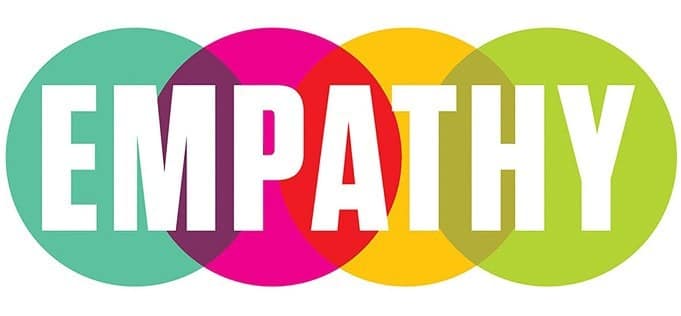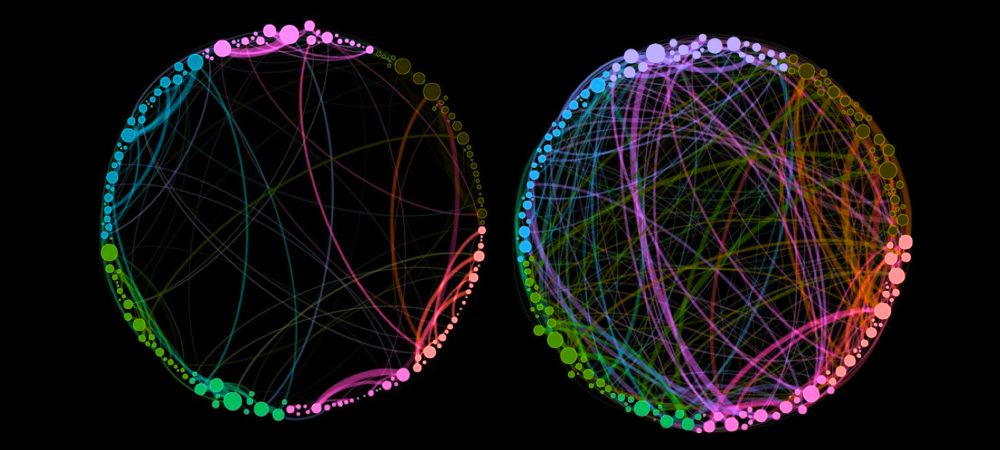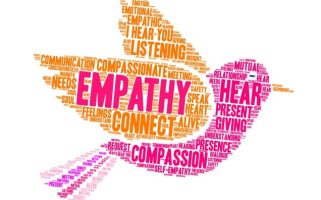What is EQ?
EQ stands for emotional intelligence (Emotional Quotient). It is the counterpart of IQ. EQ tests usually measure how someone deals with the emotions of themselves or others and how someone deals with situations that he or she cannot change?
Increase EQ against psychological complaints?
The higher the EQ, the better people can understand their own emotions and those of others. In particular, understanding and listening to your own emotions, which communicate mainly through the subconscious through the body, can be the start of improvement in many psychological complaints. If you know how your subconscious brain communicates through your body to the conscious brain, you can make better decisions for yourself that are less harmful to yourself.
12 tips for increasing EQ
By increasing the EQ you will be able to understand yourself and others better. This avoids conflict, causing less stress. Less stress means more serotonin and less stress reduces psychological complaints.
Here are our tips for a higher EQ.
1 Practice naming your emotions
Naming your emotions reveals how your feelings can influence your thoughts in a situation.
Although feelings influence every decision you make, most people don't spend much time thinking about how they feel. In fact, they are often more comfortable with things like "I had butterflies in my stomach" or "There was a lump in my throat," rather than saying, "I felt anxious" or "I felt sad." Try to translate from a proverbial form of experience, such as angry, into a concrete emotion, such as anger.
2 Try to name someone else's emotion
If you are in an emotional situation with another person, try to identify their emotion as well. In most cases you want to keep that to yourself and in some cases you can ask whether someone feels the way you think they feel. Being able to empathize with others is called empathy or empathic ability.

3 Limit the time you spend looking at a screen.
Studies have shown that screen time makes it harder to read emotions.
Staring at your laptop or smartphone for hours on end can reduce your ability to read other people's feelings. Consider doing a digital detox every once in a while. A few days away from your electronics can do wonders for your ability to read the emotions of others.
4 Try to look at previous conflicts from a different perspective
Think back to a conflict without representing your own interests, but try to play the other party's lawyer. Try to understand the other person's arguments, even though you may not agree with them.
5 Future conflict-avoidant behavior
Instead of jumping into an argument or interrupting someone you disagree with, focus on developing a better understanding of how the other person is feeling.
Start paying close attention to the emotional states of others. See if you can recognize how someone is feeling and how that emotion is likely to influence that person's perception and behavior.
6 Decide for yourself how you feel
Never give away power over your own emotions. You have control over how you feel and how you react to things.
Instead of blaming your boss for driving you crazy, consider what steps you can take to calm yourself down. Instead of saying that your mother makes you feel bad about yourself, focus on rebuilding your self-esteem.
7 Learn to accept your emotions
Whether at school, at work, or even in your own family, all too often people are taught, directly or indirectly, to suppress or be ashamed of their emotions. There is a societal attitude that negative emotional reactions indicate weakness. This is not a weakness, it is a sign of courage and self-respect.
There is a difference between having an appropriate emotional response and an inappropriate one, such as lashing out at a coworker. There is a difference between expressing emotions in public or in familiar situations. When you have an emotional response, such as overwhelming resentment or shame, acknowledge them and apply them appropriately for the situation.
8 Manage your fears
If you want a certain outcome, it's easy to adopt an all-or-nothing mindset: I'll be so happy if I achieve a super hard-to-achieve goal and my future will be ruined if I don't.
Especially when certain aspects are beyond your control, reduce your fears by imagining alternate outcomes. It may seem like a turn-off at first, but I know my alternatives will open just as many doors for me.
9 Take the time for an appropriate response
If you're in a difficult conversation, you don't have to immediately find a solution or make a commitment. Stay polite and say that you need some time for yourself to collect your thoughts. Things to try:
- Go for a walk
- Call someone for advice
- Splash some water on your face or go outside to cool down, literally and figuratively (cooling your body temperature reduces stress)
- Write out a scenario to sort out your feelings
- Practice a calm response
- Do a breathing exercise
When you panic, fight-or-flight responses are triggered and rational thinking is put on the back burner. The goal is to create enough distance and time so that you can get out of fight-or-flight mode and think rationally.
10 Practice gratitude
Gratitude can reframe your thoughts and help you see the positive in every scenario. Practicing gratitude when you're feeling neutral will help you feel better when emotions are running high. Also try to see what you can be grateful to someone for while that person arouses negative feelings in you.
11 Meditation
There is a lot of evidence that meditation increases emotional intelligence.
Meditation reduces overall stress and helps you learn to recognize thoughts of yourself and others. It takes some practice to meditate well, but the increase in empathy ensures a more relaxed way of life.
12 Psychedelic therapy
Psychedelic therapy works in the same way as meditation, only thousands of times stronger and if the guidance is good it will be many times easier than meditation. Psychedelic therapy also ensures a higher consciousness in which the conscious brain (frontal lobe) is able to connect with the primal brain, resulting in a greater connection with the emotions, the subconscious primal brain. As a bonus, psychedelic therapy also creates new connections in the brain, making you more aware and empathetic. Even after the first psychedelic therapy session you will notice a difference.

Our services
We have different protocols for trip therapy and we do it slightly differently for each client. Everything is done in consultation and our advice is only advice. With every form of psychedelic therapy, we also try to look at what we can do in terms of nutrition, supplements and exercise. We do this because if we address every area of well-being, we achieve even better results than psychedelic therapy alone
Overview of trip therapy procedure
Typically, with most clients we use a schedule that looks like this:
- Report, neurotransmitter test and intake
- Advice about nutrition, exercise and supplements based on point 1
- Review a period of 2-3 weeks of progress from point 2
- An individual psychedelic therapy* (Unless a group is extra useful or preferable)
- Debriefing of the psychedelic therapy on the same day
- After about 1-2 weeks there will be another discussion
*During psychedelic therapy, in addition to using psilocybin, we also use aromatherapy, color therapy, carefully selected music, herbs and stimulating supplements. All this tailored to the customer and the goal.
You will find here our prices for psychedelic therapy
Contact details
Would you like to know more about what we do and who we are? You can ask us anything. This can be done via the options below. Choose a medium that you feel comfortable with.
Public questions via forum: click here
Telephone and WhatsApp: +31640898455
E-mail: [email protected]
Contact Form: click here
Facebook: click here
Twitter: click here
